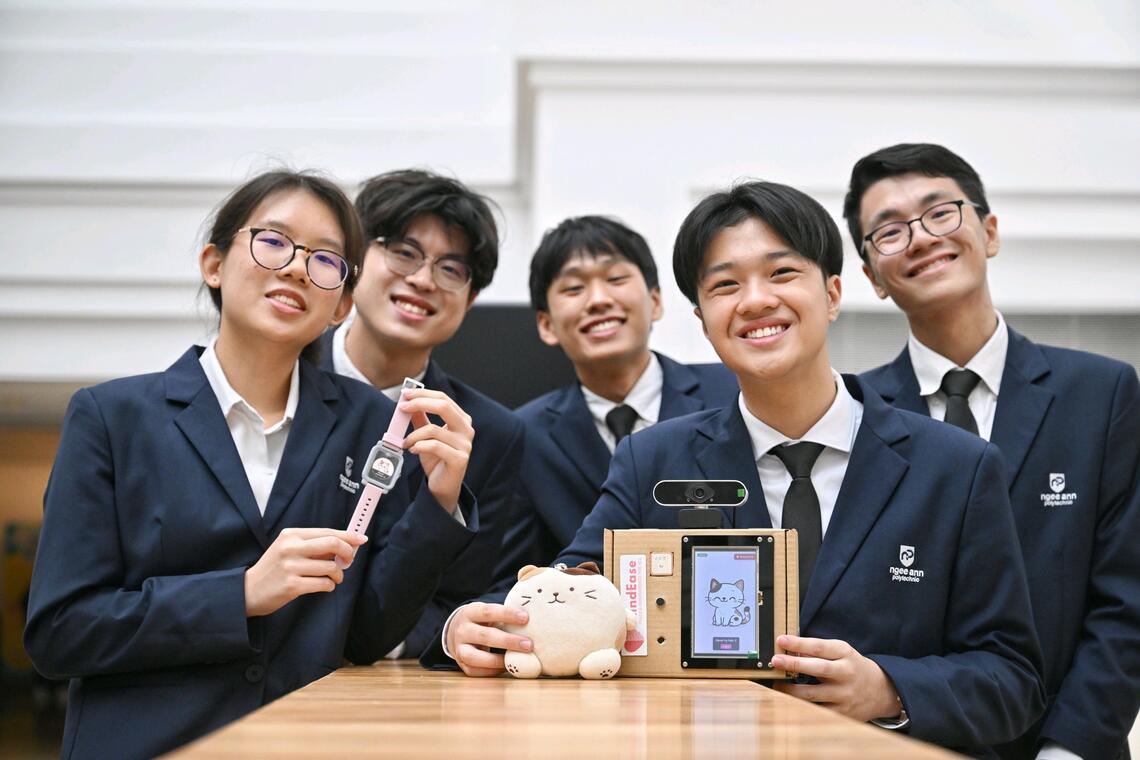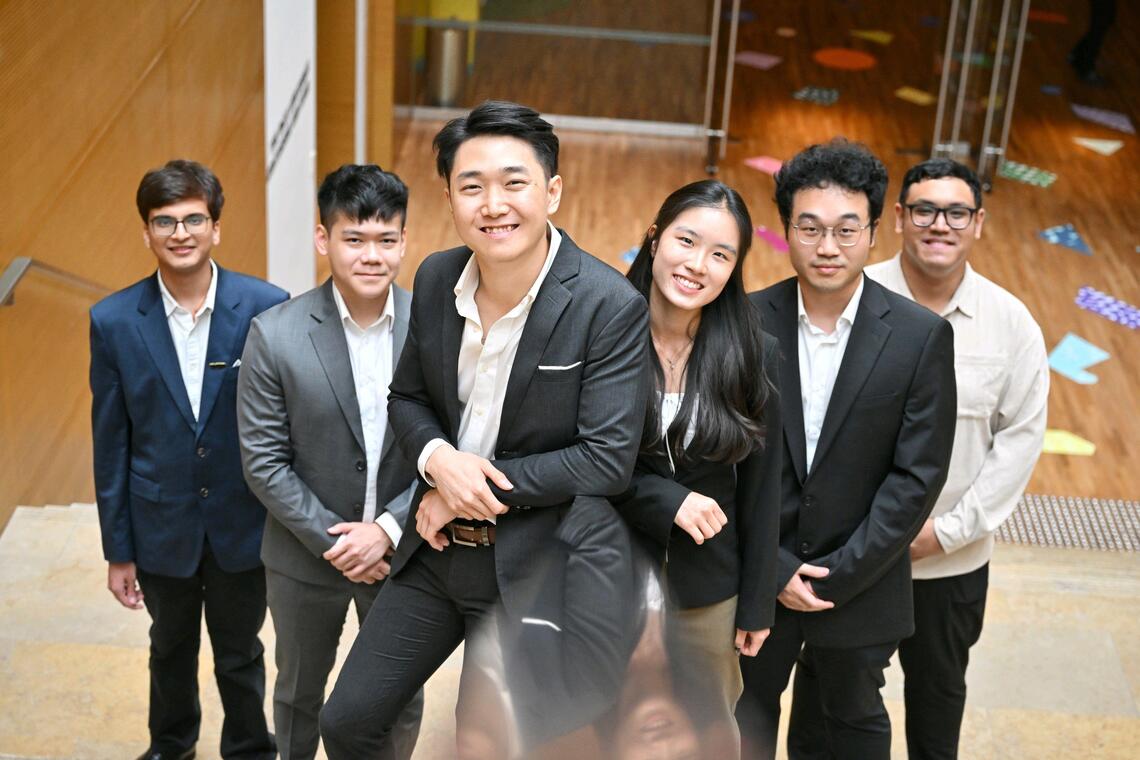SINGAPORE – Just as how objects in space float aimlessly in the darkness, people facing mental health issues can sometimes find themselves adrift, not knowing how to get out of their situation, said Singapore Management University (SMU) student Isaiah Chia.
Now, a tool developed by Mr Chia – together with five others from SMU’s School of Computing and Information Systems – aims to find young people facing issues such as anxiety and depression.
Dubbed Interstellar, the system takes a proactive approach to mental health by using bots to comb through platforms such as Discord and Reddit for posts by Singapore-based users about feeling sad or anxious, said Mr Saurabh Maskara, 21.
Both of these platforms allow bots, but messages can come only from humans.
Someone from the Singapore Association for Mental Health (SAMH) will be alerted to reach out to these users privately, asking if they need help and directing them to Interstellar’s website, which has information about the organisations they can turn to for help, and other resources.
The website includes a light-hearted personality quiz – which categorises users’ personalities based on their similarity to planets – that is based on Patient Health Questionnaire-4, or PHQ-4, a recognised four-question screening tool for symptoms of anxiety and depression.
Interstellar also includes a Telegram bot that can connect them directly to information and booking an appointment with SAMH, if necessary.
The strategy is to prevent these young people from “drifting into a black hole”, said Mr Chia, a third-year student. “Instead of expecting them to come to us, we go to them.”
Interstellar clinched top prize at Dell InnovateFest 2025, a hackathon organised by the US tech giant to get young people in Singapore to harness technology to address societal issues.
The 2025 competition – organised in collaboration with Minds and SAMH – challenged students to develop technology-driven solutions addressing mental health concerns for teenagers and caregivers of people with intellectual disabilities.
The Institute of Mental Health’s 2024 National Youth Mental Health Study found that a third of Singaporeans between the ages of 15 and 35 reported severe or extremely severe symptoms of depression or anxiety.
Now in its third year, the competition featured 55 finalists from 10 polytechnics and autonomous universities islandwide.
Teams used technology such as generative artificial intelligence to develop their solutions, and were mentored by experts from the Dell Technologies Asia Pacific and Japan AI Innovation Hub.
Presenting the awards at a ceremony held at the National Gallery on Sept 29 was Minister for Education Desmond Lee.
Speaking at the event, Mr Lee described strengthening Singapore’s mental health and well-being ecosystem as a key priority.
Caregivers of people with intellectual disabilities face “significant strains, stress and anxiety” balancing being a caregiver and other commitments, while young people face increased rates of anxiety and mental illnesses.
A whole-of-society approach is needed to create an ecosystem that can tackle such social issues, said Mr Lee, who is also Minister-in-charge of Social Services Integration.
Winning in the polytechnic category was a five-member team from the School of InfoComm Technology at Ngee Ann Polytechnic, who developed MindEase, a tool aimed at addressing stress and burnout among caregivers of those with intellectual disabilities.

Ngee Ann Polytechnic students (from left) Wu Enjia, Amos Goh, Ian Lim, Jeffrey Lee and Ethan Chew won in the polytechnic category.
ST PHOTO: ARIFFIN JAMAR
Using a smartwatch or other devices, MindEase uses a digital companion called Fuku – appearing on-screen as an animated cat or other characters – to help people with intellectual disabilities regulate their emotions, guide them while travelling alone, and allow their caregivers to locate and contact them in case of emergencies.
Still a proof of concept at this point, the app was developed with input from Minds.
The aim is to help them develop a sense of independence while assuring their caregivers of their well-being, said Jeffrey Lee, 19, who is in the third year of his diploma in information technology course, noting that in the team’s interactions with caregivers, some reported being unable to relax as they were thinking about the safety of their loved ones even during their leisure time.
The winning polytechnic and university teams received a grand prize of $10,000 each. The projects will be developed further for real-world use.
“These young innovators are proving that technology can advance both business and society,” said Dell Technologies Singapore vice-president and managing director Andy Sim.
“They created not just solutions but a new generation that is purposeful, inclusive and focused on a better future for all.”
ST HeadstartDesmond LeeTertiary educationTechnology sectorMental health

